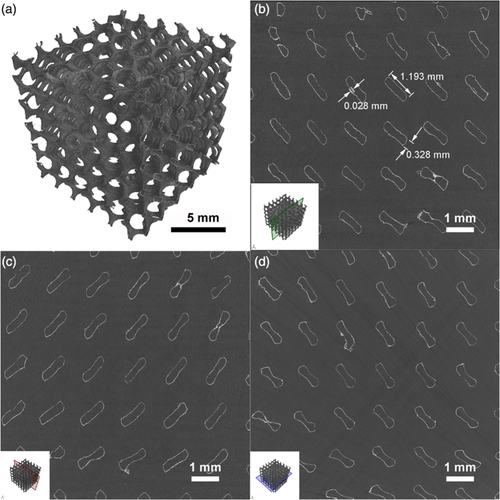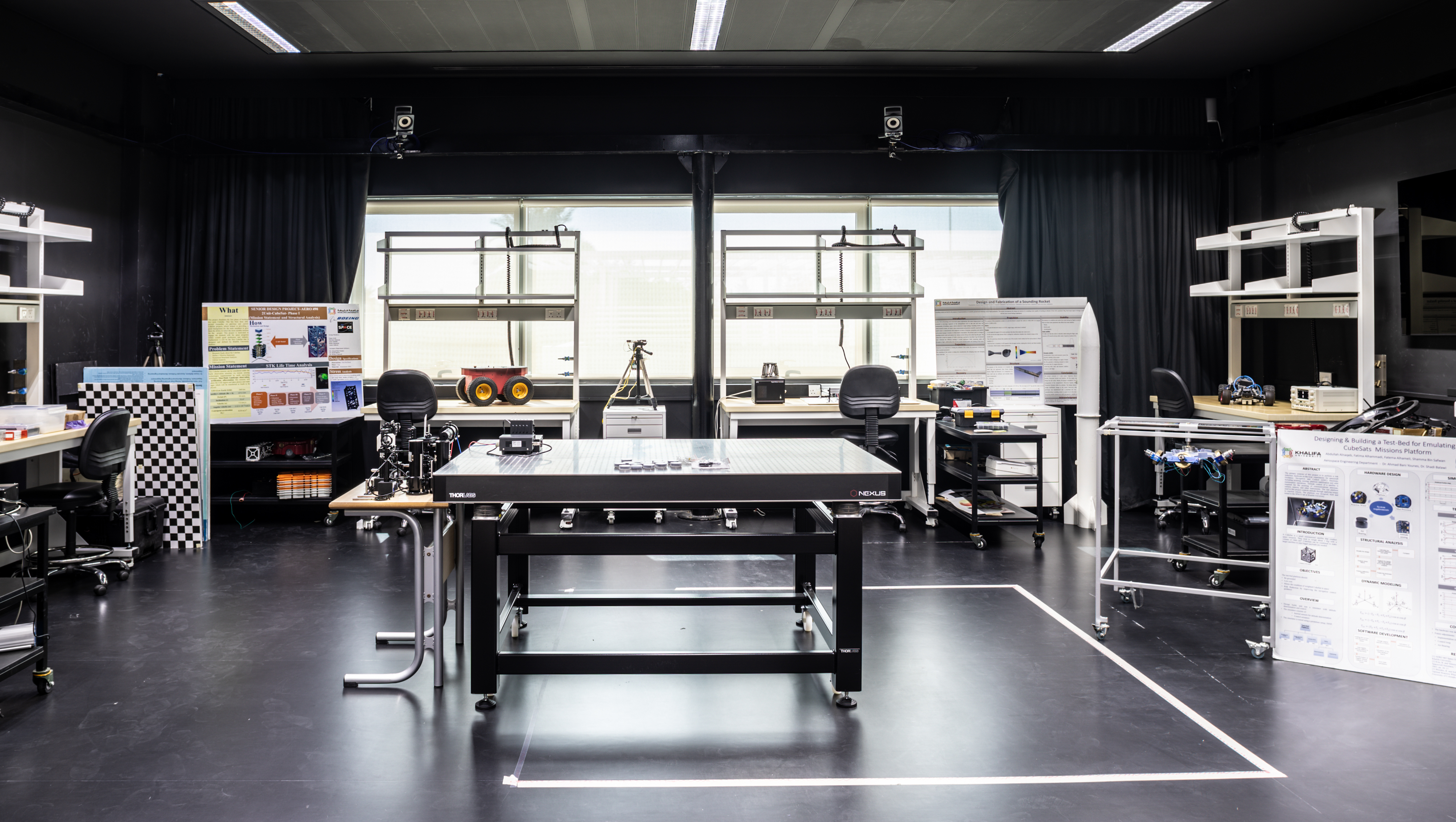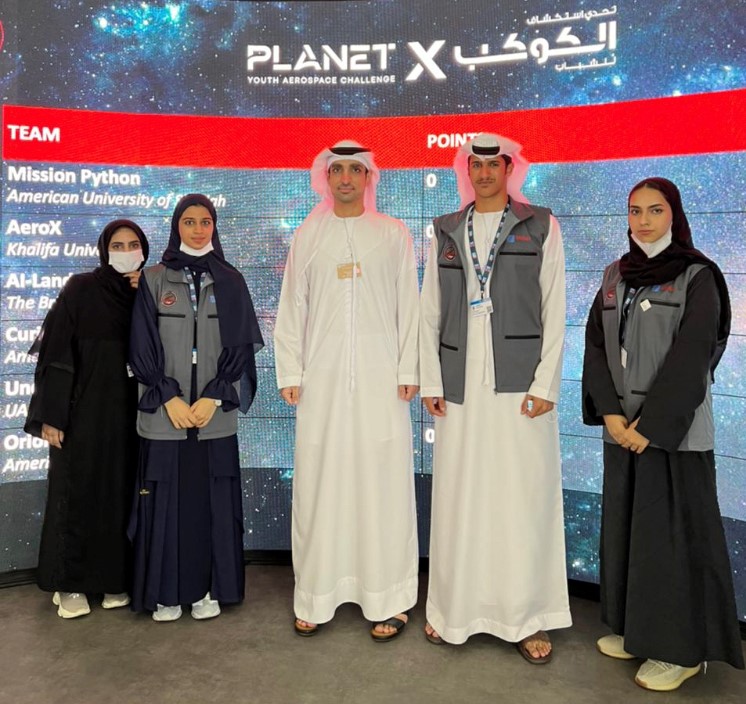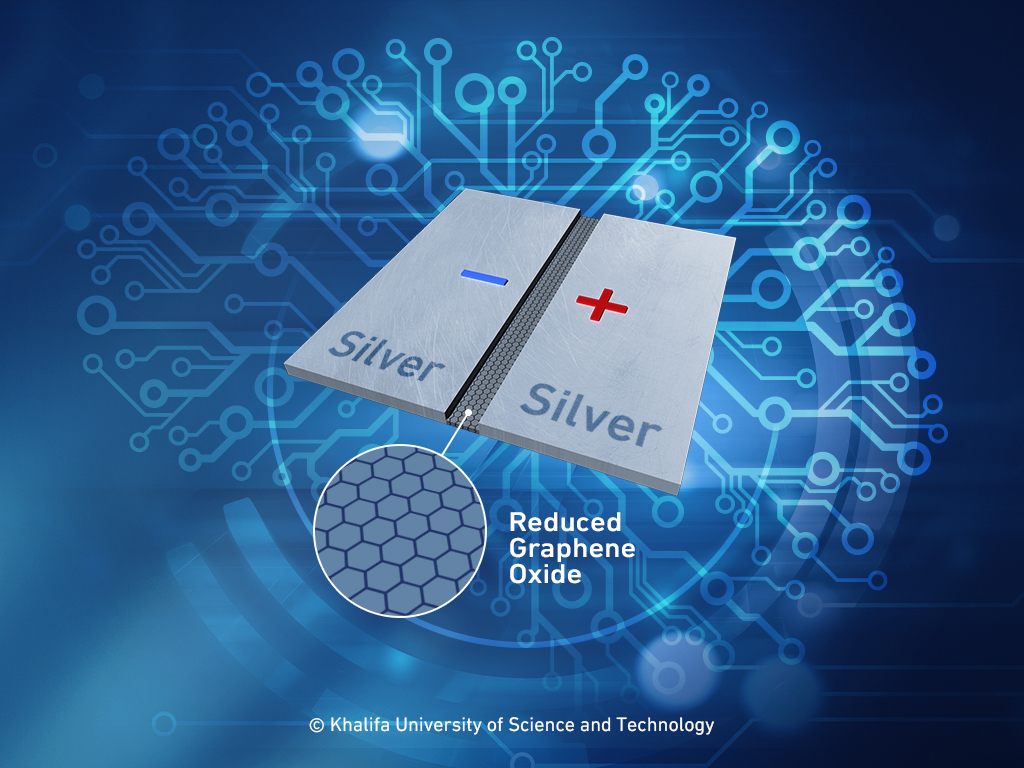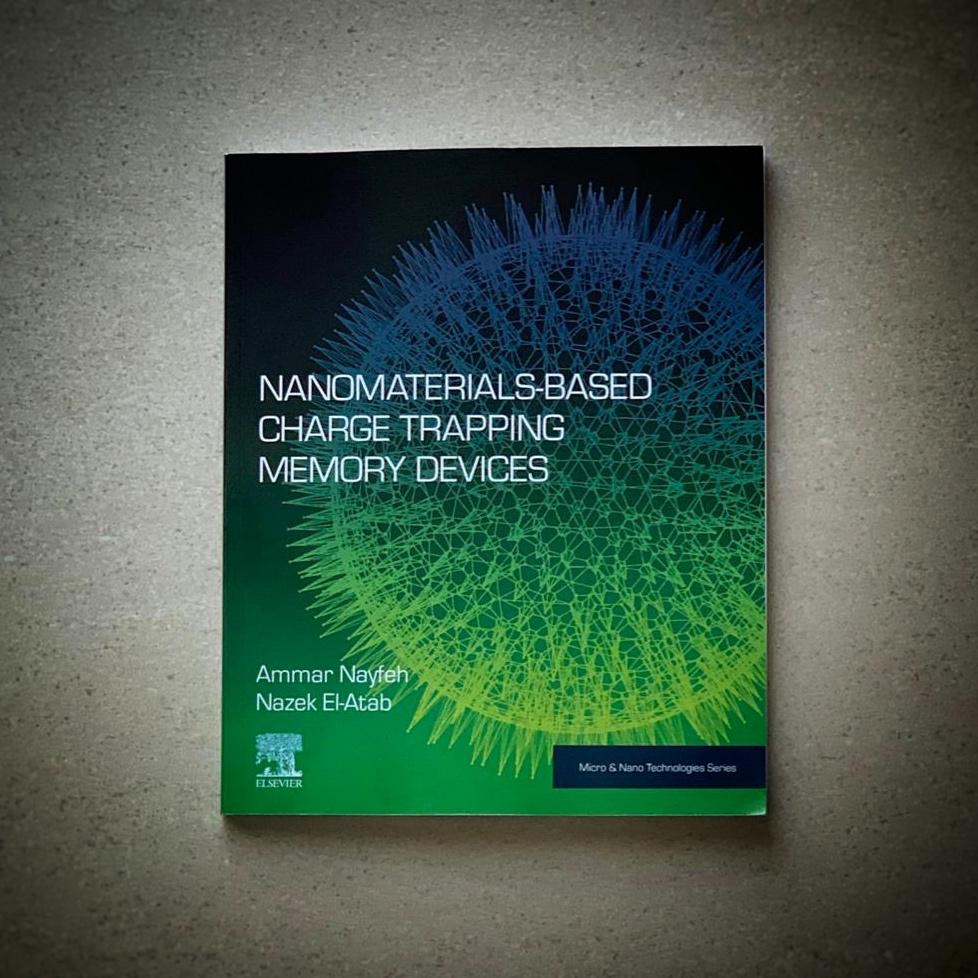
Rising consumer demand for faster, more efficient and smaller electronic devices has generated a need for scalable and reliable memory devices with low power consumption. The computer’s memory has a critical role: It is responsible for storing and retrieving data quickly. Traditional memory devices are not improving as quickly as other computer components, however, prompting researchers to turn to nanomaterials find new ways to improve a computer’s memory performance and efficiency.
Dr. Ammar Nayfeh, Associate Professor of Electrical Engineering and Computer Science at Khalifa University, and Dr. Nazek El-Atab, Postdoctoral Research Fellow at King Abdullah University of Science and Technology and KU alumna and Dr. Nayfeh’s former student, published their work in Nanomaterials-Based Charge Trapping Memory Devices, a book providing a detailed explanation of memory device operation and an in-depth analysis of the requirements of future scalable and low-powered memory devices in terms of new materials properties.
“It is clear that nanotechnology is very relevant now and a key to the future,” said Dr. Nayfeh in the preface to their book. “Specifically in the area of electronics, nanotechnology will play a vital role in the ability to increase device performance.”
Dr. Nayfeh and Dr. El-Atab published this book as a culmination of their work that started with Dr. El-Atab as a PhD student at KU, supervised by Dr. Nayfeh. Calling on their considerable research on nanomaterials and structures and nano-memory, their new book offers everything students and researchers need to know relating to low-power memory devices.
“A marriage between nanotechnology and traditional electrical semiconductor-based devices is vital for future progress,” wrote Dr. Nayfeh. “Currently, nanotechnology is no longer a pipe dream, or a catchy phrase, but now has real-life applications in the mainstream. In 2019, you could buy a TV with quantum dot displays or buy makeup with nanomaterials.”
Dr Nayfeh also added “A majority of research carried out in this book was done in the UAE at Khalifa University using UAE’s only cleanroom facility. We are grateful for the constant support given to make this possible and helping to make the UAE a leader in nanotechnology research moving forward.”
This book is an important reference for materials scientists and electrical engineers looking to develop low-powered solutions to meet the growing demand for consumer electronic products and devices.
“It is important that current and future graduate students are educated in the area of nanomaterials as this will be a key tool for them,” wrote Dr. Nayfeh.
Jade Sterling
News and Features Writer
30 June 2020


